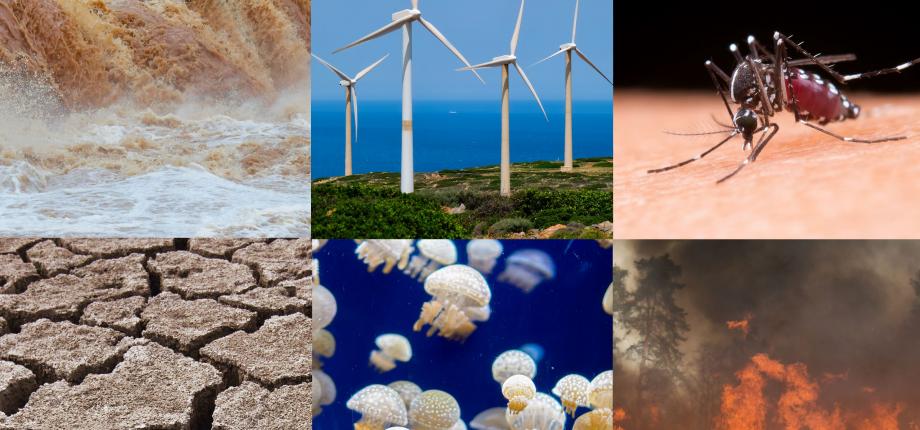E4C contributes to the First Report on Climate and Environmental Change in the Mediterranean Sea

Based on the Intergovernmental Panel on Climate Change (IPCC) process, this report is the first regional assessment focusing on observations and predictions in terms of impact at the scale of a region. The Mediterranean Sea, but also its islands and surrounding countries, are being impacted by a much faster climate change than the global one and this report aims to make scientific knowledge on climate and environmental change and associated risks accessible to decision-makers, businesses and citizens.
In particular, the "Energy" section of the report was led by Philippe Drobinski, Director of the Laboratoire de météorologie dynamique (LMD-IPSL*) and head of the E4C Interdisciplinary Center, and was co-piloted and fed by Vincent Bouchet (CREST* and I3*), Edouard Civel (LIX*), and Robert Vautard (LSCE-IPSL*), and also fed by the work of Thierry Brunelle (CIRED*), Alexis Tantet (LMD-IPSL), Rémy Lapère (LMD-IPSL).
The MAR1 "Energy" section highlights the fact that the energy transition is expressed by different issues at stake between the two shores of the Mediterranean Sea, with in particular a decrease in energy demand in the north, whereas it should continue to grow in the south (lower heating demand and increased cooling needs).
At the same time, some renewable energies could be impacted by global warming, such as hydropower, which will suffer from the drop-in river flows. By further improving energy efficiency and deploying renewable energies on a large scale, especially solar, the whole Mediterranean region can reduce energy security tensions for importing countries, improve opportunities for exporting countries and reduce energy costs and environmental damage for the whole region. Regional integration and cooperation in the energy market is necessary to mitigate climate change in a cost-effective manner.
This report points to many consequences of climate change combined with other factors such as population growth and pollution. To enable you to take full ownership of this exhaustive and interdisciplinary analysis, discover the summary version for decision-makers and citizens.
Recognized and rewarded work
In mid-December, one month after the publication of its report, the MedECC was awarded the 2020 North-South Prize by the Council of Europe. Each year, this prize rewards two public figures whose commitment, achievements and hope are recognized in the protection of human rights and in North-South solidarity. Since 1995, this is the first time that the prize has been awarded to organizations (the second laureate being the International Commission against the Death Penalty, ICPD). By awarding this prize to the MedECC, the Council of Europe recognizes the quality of the work carried out, as well as "the collaboration between states and societies to address the challenges of climate change" and "scientific cooperation between experts to produce knowledge-based analysis as a sound basis for environmental policy planning". Candidates for the prize may also be recognized for their advocacy of pluralist democracy or for raising public awareness of issues of interdependence: the prize could be compared to the European equivalent of the Nobel Peace Prize.
> Learn more about MAR1 report
> Find the jury's decision (English version only)
* LMD-IPSL, Dynamic Meteorology Laboratory: a joint research unit of CNRS, École Polytechnique/Institut Polytechnique de Paris, ENS/PSL and Sorbonne Université
IPSL : Pierre-Simon Laplace Institute for Environmental Science Research
CREST: Center for Research in Economics and Statistics, a joint research unit of École Polytechnique/Institut Polytechnique de Paris, CNRS and ENSAE Paris/Institut Polytechnique de Paris.
I3: Interdisciplinary Institute of Innovation
LIX: Laboratoire d'Informatique de l'École Polytechnique, a joint research unit of École Polytechnique, CNRS
LSCE : Climate and Environmental Sciences Laboratory
CIRED: International Center for Research on Environment and Development













